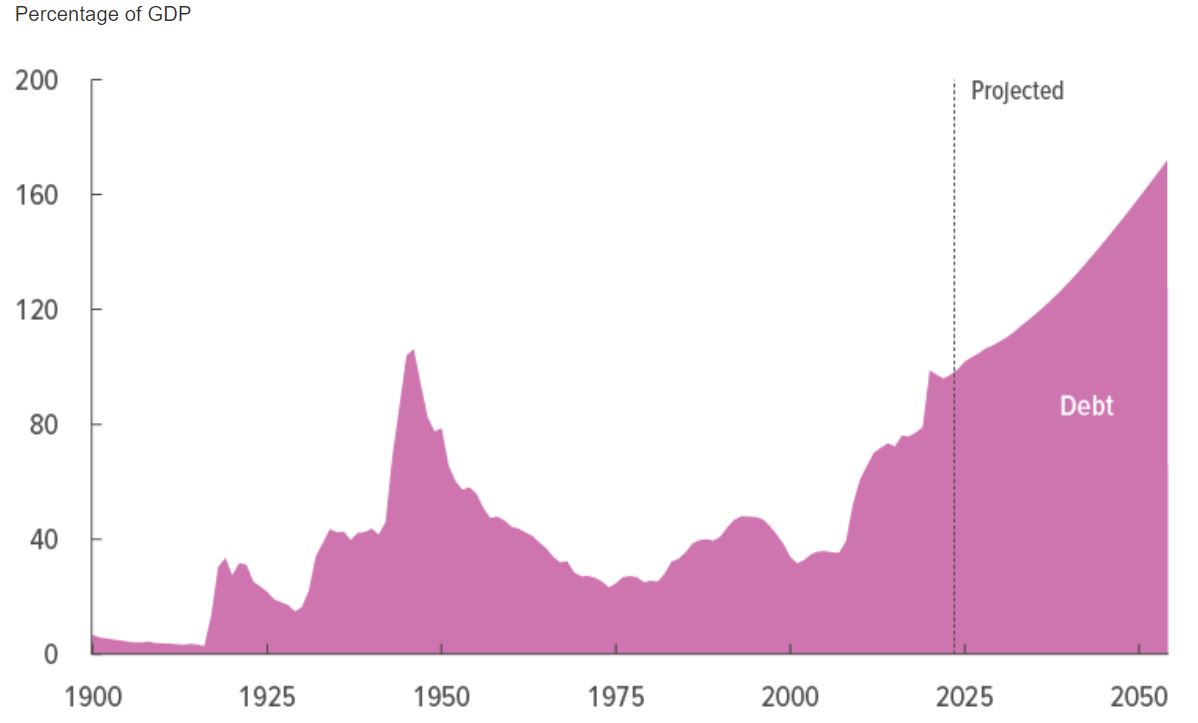The nation’s debt and deficit crisis will significantly worsen, starting with the next fiscal (FY2025), the Congressional Budget Office (CBO) warned Wednesday, releasing its budget and economic outlook for 2024-2034.
The public debt is projected to rise from $26.2 trillion at the end of 2023 to $48.3 trillion at the end of 2034, pushing the amount of federal debt higher than the nation’s economic output:
- As a percentage of the Gross Domestic Product (GDP), the debt is poised to rise from 97.3% in FY2023 to 99.0% of GDP in FY2024, then hit 101.7% in 2025.
- Debt will then continue to rise, to 116% of GDP in 2034 – and 172% of GDP in 2054. The highest percent on record is 106%, set in 1946 as the U.S. was coming out of WWII.
- The debt increase from FY2024-FY2034 will be fueled by steep increases in mandatory spending (such as Social Security and Medicare) and interest costs.
- Beginning in FY2025, net interest costs will be the highest percentage of GDP on record (since 1940).

The outlook for the national deficit is also bleak. After setting a record high for any non-COVID pandemic year in FY2023 ($1.7 trillion), the budget deficit is projected to remain in the $1.6-1.8 trillion range through FY2027, then steadily rise to trillion $2.6 trillion in 2034.
The deficit will amount to 5.6% of GDP in FY2024, growing to 6.1% in FY2025, the same level as in 2034 – but, still significantly higher than the 3.7% that deficits have averaged over the last 50 years.
In the past, the deficit as a percent of GDP has only been this high during times of crisis, the CBO notes:
“Since the Great Depression, deficits have exceeded that level only during and shortly after World War II, the 2007–2009 financial crisis, and the coronavirus pandemic."
Concerns about the deficit have been exacerbated by the ongoing budget battle in Congress, leaving the government’s future funding levels up in the air, as CNN explains:
“CBO’s deficit projection will likely add pressure to congressional lawmakers who have yet to agree on funding for federal agencies for fiscal year 2024. House GOP lawmakers are pushing to cut spending to narrow the deficit, but divisions on Capitol Hill have forced Congress to pass three short-term funding bills to avoid government shutdowns.
“The latest deal keeps federal agencies funded into early March.”
The business and economic reporting of CNSNews.com is funded in part with a gift made in memory of Dr. Keith C. Wold.
